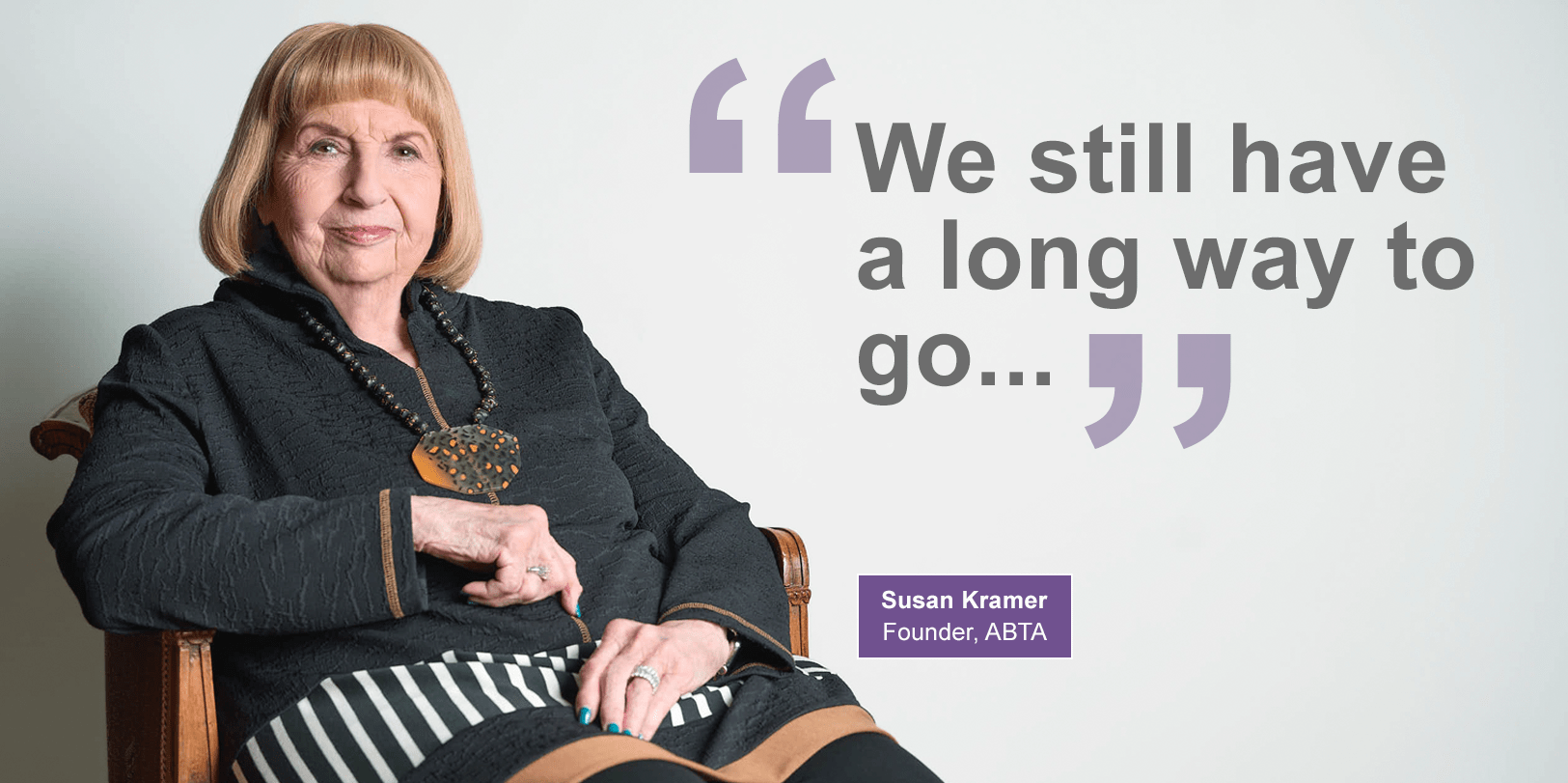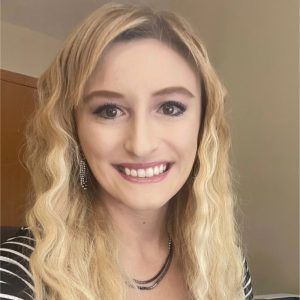
From the comfort of her winter home in Arizona, MindMatters sat down with ABTA Founder Susan Kramer to learn more about the dynamic woman who, 50 years ago, started the organization we know today as the ABTA.
Susan is bright, friendly and focused. Her eyes are intense yet welcoming. As you talk with her, one begins to understand just how determined she was to find a cure for brain tumors, after her daughter Stephanie passed due to a brain-stem glioma recurrence on September 3, 1974, just two weeks after her seventh birthday.
You started the ABTA back in 1973. What was it like back then, for brain tumor patients and their families?
In those days, there was very little...the CT scan was brand-new, the MRI did not exist. A neuro-encephalogram was the only testing they had at that time, besides a CT scan. Stephanie had to lay flat for 12-14 hours and the treatment caused headaches. That’s how they found her brain tumor.
Chemotherapy was really in its early stages, it was experimental. There really weren’t any anti-nausea drugs back then either, so when Stephanie was undergoing radiation, we wouldn’t get out of the hospital before she was throwing up. They said her treatment would be successful for six months to two years, but that the tumor would eventually come back. There were no other tools for us at that time…
But we got through it, and she was responding to treatment. For a couple of years there, she was taking dancing lessons and going to school, leading a relatively normal life for a child of that age.
What were the early days of the ABTA like?
We started out in my parents’ basement. It was certainly the days before the internet, so publicity was not that easy. I remember we had a fundraiser at a Wendy’s, one of the first in the Chicago area.
We were an all-volunteer organization for a very long period of time. As we proceeded, we felt that information was most important — how to talk to your doctor, questions to ask, the brain tumor primer — was all started at that time. We were functioning for a couple years before we hired a marketing person to help us get noticed. We raised money by selling Christmas cards, having events…we used to have a motorcycle ride for many years that Bob Collins (former morning DJ on WGN-720AM radio) used to ride for us.
“When I first started out, I thought, ‘Well, we're going to find a cure.’ It was such an unrealistic, crazy idea that, 50 years later, we still don't have an answer for what my daughter died from. Research has made a difference over time, but we still have a long way to go.”
– Susan Kramer, ABTA Founder
Why did you start the ABTA?
During Stephanie’s treatment, I asked her doctor if there was any organization doing fundraising for brain tumor research. And he said, “Well, the only organization is the Brain Research Foundation at the University of Chicago, but they’re more interested in how the brain works.” So that’s when I got the idea, if there’s nobody looking for a cure for brain tumors, I wanted to do something about it. I told him, “You know, I can’t just sit around and wait for her tumor to come back!”
Manny, Susan’s husband of 59 years, adds: “Number one, it [starting the ABTA] was in our DNA. We just couldn’t accept that Stephanie…that we never got a positive outcome. “When Stephanie was uncomfortable during treatment, she would look at me and ask, ‘why, daddy?’ It was very tough.”
What are you most proud of?
I felt strongly that we had started something that really mattered. And, and if we could make a difference in the lives of other people who had to experience the same traumatic thing, well…
It was important to me that we try and help other people navigate the system—where to go for treatment, how to fight with your insurance company. That we could have answers for them.
I’m also proud that a lot of the people that we gave money to in the early funding years, went on to become major players in the brain tumor research world. But I think I’m most proud of the fact that we started out to do something to make a difference in people’s lives.
What are you hopeful for, and what message would you like to share with our readers?
I’m hopeful not only that more people will learn about the ABTA, but that people will not despair. We need your help to continue to search for a cure. And that means donating. For this new campaign, Meet Hope Head On, so we can continue our work, and go in new directions, please think about us and donate. Thank you.
Learn more about Meet Hope Head On.

Jessie Schlacks
Jessie is Managing Editor of the bi-monthly e-newsletter MindMatters. Submit story ideas or questions to jschlacks@abta.org.


















